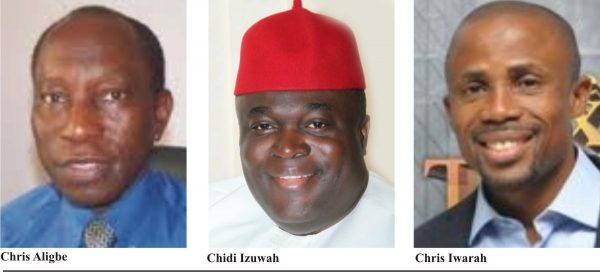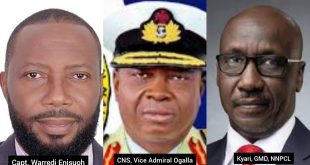By Kenneth Jukpor
With less than four months to the proposed December take-off of ‘Nigeria Air’, there are more puzzling questions than answers on Federal Government’s postulations and possibility of the carrier emerging to resolve the deficiencies in the aviation industry.
The government has not disclosed the investors that are putting money in the airline; while its willingness to provide the $300million take-off grant is also worrisome. The number of aircraft in the proposed fleet hasn’t been revealed; although some analysts speculate five airplanes. There has been no management contract; therefore the process of obtaining Air Operator Certificate (AOC) remains bleak.
Although the Minister of State for Aviation, Senator Hadi Sirika said that the new airline would be private sector-driven, he did not explain the equity profile and ratio of the airline. While it was perplexing to observe that no foreign or indigenous technical partner or investor was present at the unveiling of the airline and its logo which took place at the Farnborough Air Show in the United Kingdom last month; it is more worrisome that one month after the project remains devoid of technical partners and core investors. This raises more concerns on the proposed private sector driven airline as the Minister has been discussing with aircraft manufacturers single-handedly without involving investors.
On the challenge with obtaining AOCs; there are five processes for granting of AOC to any airline. These include pre-application phase, document compliance phase, which involves certification team reviewing applicant’s documents for compliance acceptance or approval.

This is followed by demonstration and inspection phase, then the certification. The next is whether the airline has sufficient personnel with the required experience. According to experts, this takes minimum of six months. As a new airline, it must have its manuals and preparing and approving manuals could take about three months. Before it is granted AOC, it is expected to operate flight without passengers for 50 hours.
In a bid to address these concerns on the ‘Nigeria Air’ which neither has a dedicated website nor an operational office anywhere in the country. MMS Plus spoke to some aviation experts as they scrutinized the government’s hasty moves, the procedures so far in its bid to establish the carrier as well as the implications on other indigenous operators.
Mr. Chris Aligbe, Chief Executive Officer of Belujane Konzult; told our correspondent that the number of aircraft in Nigeria Air’s fleet would be five.
“Nigeria Air is still in the making. However, we have been told that the number of Aircraft would be five. No company has been appointed as an investor or for management. The 5% equity is not a ratio as no value has been put on the 5%. The $300million is the take-off grant the government is going to provide that would be recovered. It could be debt or it could also be equity but nothing has been determined about that. The essence is to ensure that the airline takes-off. Nobody has said that 5% is worth $300million. All that has been said is that the government would hold 5% equity and the government is giving out $300million as take-off grant or viability gap funding so that the airline takes-off and the government would later recover its money when the investment takes-off. This has nothing to do with the 5%” he said.
However, Aligbe who was a former Head of Public Relations at the defunct Nigerian Airways, expressed satisfaction that Nigeria Air has followed all due processes with regards the Infrastructure Concession Regulatory Commission (ICRC).
“There were Transaction Advisers and at ICRC other due processes were followed but it hasn’t got to the point where we could start appraising the product because the product isn’t out. However, we know that the country needs a formidable national carrier so that it could move ahead with regards to aviation” he added.
Meanwhile, Mr. Chris Iwarah, the Corporate Communications Manager at Air Peace, argued that it would be unjust to exploit indigenous operators via tax to support Nigeria Air which would be a competitor.
“It will be unfair for anybody to utilize public funds to support some category of investors. It will be discrimination and against the laws of the country. Everybody who is a Nigerian must be treated on the same platform. You can’t create a group of special investors.”
He called for a level playing ground for all investors, noting that those investors who sourced funds to invest in the sector without any aid or grant at a certain time when the sector was showing no hope or prospects for profitability that should be encouraged.
“Investors like Air Peace who dared to take the risk to invest in the aviation sector deserve more support from the government. Level playing field must be created for every operator in the aviation sector when Nigeria Air comes onboard. If Nigeria Air is 95% private sector driven, it would be inappropriate to take the monies Air Peace pays as tax to support Nigeria Air against Air Peace”, he said.
According to him, the local operators support the initiative, Nigeria Air, noting that his organization ‘Air Peace’ had been advocating that government should come in to support the industry but such support must be across board.
“For instance, if the government is giving any player in the industry N50million, the government should give Air Peace N50million and any other airline the same N50million. If the government does this, there would be no crisis in the sector. Nigeria Air brings about competition which is good for the industry. Air Peace isn’t threatened by the emergence of Nigeria Air, in fact we are deeply in support of the initiative because we are strong, and we have the capacity and business model that is outstanding and unbeatable. People are already amazed at our rapid success in just four years”, he added.
Meanwhile, the Acting Managing Director of ICRC, Mr. Chidi Izuwah told our correspondent that the project was yet to receive potential investors or technical partners as such development would come after the procurement notice had been issued.
“Everything about Nigeria Air is available on ICRC’s website under the PPP section. The project has gone into the procurement process. It is when you start the procurement that the potential investors become visible because the procurement notice hasn’t gone out. The draft feasibility study is also on ICRC website” he said.
According to ICRC, out of the $300 million funding estimate for the entire airline start-up operations in 2018, the Federal Government would provide $55 million upfront grant/viability gap funding.
Out of the amount, $8 million would take care of acquisition of offices for the official take-off of operations, cash flow requirements, payment of commitment fees for aircraft to be leased for initial operations and deposit for new aircraft.
The Commission stressed that the role of the government will be to assist with start-up, provide initial capital, let the private sector operator manage the airline without interference, and facilitate the process for opening up the capital of the airline to private sector financial investors.
ICRC noted that the government would also enhance the enabling environment for aviation businesses in Nigeria.
“The government has already embarked on a programme of improving multiple elements in the aviation value chain, including airport infrastructure, concessioning airports, strengthening safety and security, and facilitating the establishment of a Maintenance, Repair and Overhaul (MRO) centre. In addition, the government is positively inclined to improve the commercial environment for the aviation sector by revising the tax regime, investment incentives and selected aviation sector regulations” it said on its PPP report on Nigeria Air.
To enable the airline benefit from the bilateral air services agreements (BASA) and other such agreements requiring local beneficial ownership as a condition, the law expects Nigerians to own majority stake in the company.
To become fully operational as a public-private partnership (PPP), the company is expected to develop through three stages, namely development, procurement and implementation.
The development stage was recently concluded with the approval of the outline business case and the issuance of a certificate of compliance by the ICRC.
During the procurement stage, requests for qualification (RFQ) and proposal (RFP) would be issued to pre-qualify and select PPP partner, after which information memorandum and RFP bidding process would be published.
“It is only after the PPP procurement process that the strategic equity investor will be known. At that point, Nigeria Air Ltd will become a public company subject to SEC, NSE and relevant CAMA rules for public companies,” the Commission said.
To ensure its viability, the ICRC said the Federal Ministry of Transportation would facilitate a Bill to be sponsored in the National Assembly for an Act making it mandatory for public officials to use the airline for their official trips.
“The Act will demand that any official travelling on a ticket bought with public funds must travel on a Nigerian carrier, unless the route is not served by a Nigerian carrier,” the commission said.
It is pertinent to note that the defunct national airline, Nigeria Airways, started off so well in 1958 but eventually crashed in 2003 as the Nigerian disease of mismanagement ate it up. Its business class seats were reserved for government officials and their cronies, girlfriends and families — most of whom flew free of charge.
Nigeria Airways flew from turbulence to turbulence despite the economic opportunities in the aviation industry. Ethiopian Airlines, Kenya Airways and South African Airways, owned by their respective governments, were doing fairly well but our own Nigeria Airways was descending both in service quality and profitability. With 5% stake, the Federal Government will only be a minority shareholder. If the airline runs well, therefore, Nigeria will be reaping dividends rather than burning subventions. However, the perplexing issues of the carrier remain unanswered at a point when any fiscal move by the government could be seen as an effort to scoop funds for the upcoming elections.
 MMS PLUS NG – Maritime, Aviation, Business, Oil and Gas News Online Newspaper with coverage in Maritime, Oil and Gas, Aviation, Power and Energy as well as Financial News
MMS PLUS NG – Maritime, Aviation, Business, Oil and Gas News Online Newspaper with coverage in Maritime, Oil and Gas, Aviation, Power and Energy as well as Financial News










